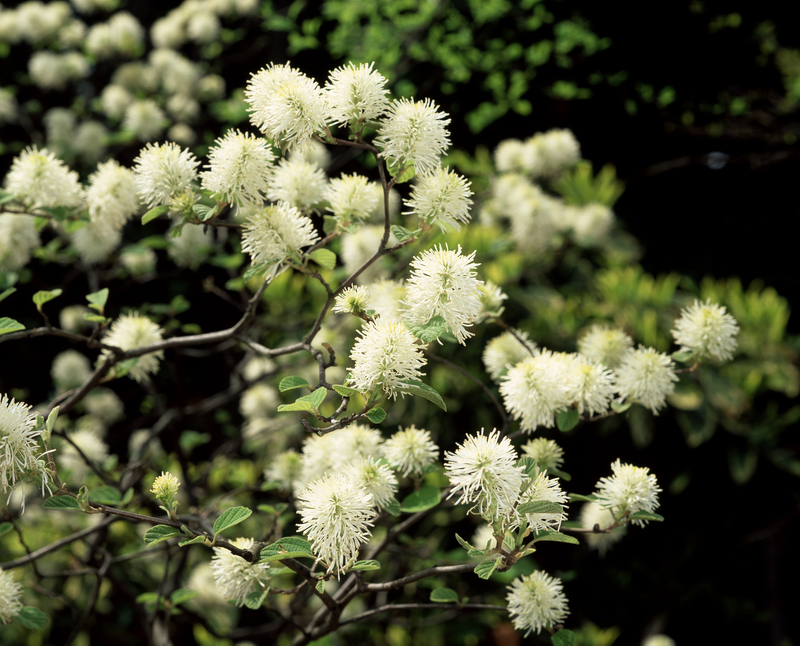Zen Garden Inspirations: Cultivating Peaceful Outdoor Spaces
Posted on 03/07/2025
Zen Garden Inspirations: Cultivating Peaceful Outdoor Spaces
Looking for Zen garden inspirations to transform your outdoor areas into sanctuaries of peace? Zen gardens have captivated gardeners and homeowners worldwide for their captivating simplicity and calming effects. In this comprehensive guide, we'll delve into the origins, designs, and essential elements of Zen gardens and provide practical advice on cultivating your own peaceful outdoor space.
The Essence of Zen Gardens: A Brief History
Zen gardens, also known as Karesansui or Japanese rock gardens, originated in Japan during the Muromachi period (1336-1573). Influenced by Zen Buddhism, these gardens are crafted to inspire tranquility, encourage meditation, and embody the beauty of simplicity. Unlike traditional Western gardens, Zen landscapes often exclude blossoms and water in favor of rocks, gravel, and minimal plantings, capturing the essence of nature's harmony in an abstract form.

Key Elements of a Zen Garden
A truly peaceful outdoor space inspired by Zen principles comprises several classic features. Whether you have a spacious backyard or a modest courtyard, these components can be adapted to fit any setting:
- Rocks: Symbolize mountains, islands, or animals; central to structure and symbolism.
- Gravel or Sand: Raked to represent water patterns, adding texture and movement.
- Moss: Brings color, softness, & age; highlights areas of stillness.
- Minimalist Plants: Evergreen shrubs, bamboo, and minimal blooms maintain year-round interest.
- Lanterns & Ornaments: Stone lanterns, pagodas, bridges evoke a sense of serenity.
Designing Your Zen Garden: Step-by-Step Inspirations
Crafting a tranquil Zen-inspired garden is a thoughtful process. Use these steps as a guideline for cultivating a harmonious space:
1. Select the Right Location
Begin by choosing a spot where you can enjoy quiet reflection. Courtyards, shaded corners, or even a dedicated section of your backyard work well. Ensure the area is easily accessible and receives enough natural light for your chosen elements.
2. Establish the Framework with Rocks
Arrange various sizes and shapes of rocks intentionally - not randomly. Larger stones can act as focal points, while clusters of smaller rocks can define boundaries or movement. The placement should feel natural, echoing the randomness of a mountain landscape.
3. Shape the Ground with Gravel or Sand
Spread a layer of fine gravel or sand, which can be raked into flowing lines or wave patterns. These patterns are symbolic of rippling water, fostering mental clarity through the act of raking and viewing.
4. Add Greenery Mindfully
Inspiration from Zen principles means restraint with plant choices. Stick to evergreens like Japanese maple, bamboo, azaleas, or ferns for year-round structure. Moss is a classic favorite, thriving in shaded, moist areas and requiring minimal upkeep.
5. Enhance the Ambience with Ornaments
Stone lanterns, small bridges, or bamboo water features conjure the ambiance of a Japanese retreat. Place them thoughtfully to avoid clutter. The key is balance and subtlety.
6. Create Pathways and Islands
Introduce stepping stones or gravel paths to encourage slow, mindful movement. These can lead to a seating nook or meditation zone, forming "islands" of peace within your Zen-inspired landscape.
Zen Garden Design Ideas for Every Space
Whatever the size of your outdoor area, you can infuse Zen garden design inspirations into your surroundings:
Small Urban Courtyards
- Vertical Gardens: Use moss panels or bamboo screens for privacy and greenery.
- Tabletop Zen Gardens: Miniature sand gardens for balconies or patios.
- Compact Water Bowls: Introduce a basin for subtle water sounds.
Expansive Backyards
- Dry Riverbeds: Use pebbles to design winding "streams" through the garden.
- Pine Trees or Junipers: Add structure, height, and year-round color.
- Large Meditation Decks: Build a wooden platform as a focal retreat amidst raked gravel.
Side Yards and Walkways
- Stepping Stone Paths: Guide visitors gently through green space.
- Bamboo Fencing: Offer privacy and wind protection with a natural touch.
- Border Moss Gardens: Fill narrow spaces with lush moss for tranquility.
The Philosophy Behind Zen Gardens: More Than Aesthetic
At their heart, Zen gardens are an invitation to mindfulness. Every element encourages you to be present, to observe nature with fresh eyes, and to consider impermanence in all things. By minimizing distractions, these gardens foster reflection, meditation, and peace--an antidote to the bustle of modern life.
The act of designing, raking, and tending a Zen-inspired outdoor space can become a form of active meditation. Whether you're adjusting rocks, trimming moss, or simply sitting in stillness, your garden evolves as a living work of art shaped by your intention.
Practical Benefits of Zen Gardens for Outdoor Living
- Stress Reduction: The minimalist design and repetitive raking actions are proven to calm the mind.
- Low Maintenance: Gravel, rocks, and evergreens require less upkeep than flower beds.
- Biodiversity: Moss, bamboo, and specific plants can attract beneficial insects and birds.
- Year-Round Beauty: Enjoy a harmonious landscape through every season.
Tips for Ongoing Zen Garden Care
- Regularly rake gravel or sand to refresh patterns and remove debris.
- Trim moss, bamboo, or shrubs as needed for tidiness.
- Inspect rocks and ornaments after storms or heavy rain to ensure stability.
- Water plants and moss during dry spells to maintain lush greenery.
Eco-Friendly Zen Gardens: Sustainable Inspirations
Sustainability aligns well with Zen philosophy. Here's how you can create eco-friendly outdoor sanctuaries inspired by Japanese gardens:
- Utilize local stone and gravel to reduce transportation impacts.
- Plant drought-resistant species suited to your climate to conserve water.
- Reuse or upcycle old garden materials as features or borders.
- Harvest rainwater to irrigate planting areas naturally.
- Avoid pesticides; encourage natural pest control through native insects.
Encouraging Wildlife in Your Zen Sanctuary
Include birdbaths, bee-friendly moss, and gentle lighting to invite beneficial wildlife. A healthy Zen-inspired garden landscape balances peaceful human enjoyment with support for local biodiversity.
Inspiring Examples and Iconic Zen Gardens
Draw ideas from renowned Japanese Zen gardens worldwide. These historic spaces can fuel your creativity and inform your design choices.
- Ryoan-ji Temple, Kyoto: The quintessential dry landscape, with iconic raked gravel and mysterious rock groupings.
- Daisen-in, Kyoto: Features metaphorical rivers of gravel and dramatic rock "islands."
- Portland Japanese Garden, Oregon: A stunning example of Zen design outside Japan, incorporating native and Japanese flora.
Study photos and layouts of these gardens for inspiration, adapting scale and plant choices to fit your own outdoor sanctuary.

Frequently Asked Questions About Zen Gardens
What is the difference between a Zen garden and a Japanese garden?
While all Zen gardens are Japanese gardens, not all Japanese gardens are Zen gardens. Zen gardens focus on minimalism, rocks, and gravel, designed for contemplation. Broader Japanese gardens may incorporate water, bridges, and a wider variety of plants.
Can a Zen garden be created on a balcony or in a small yard?
Absolutely. Many mini Zen gardens or tabletop versions are popular among city dwellers. Use a tray of sand, a few rocks, and a small moss patch for a tranquil retreat indoors or on a small patio.
How much maintenance does a Zen garden require?
Zen-inspired gardens are generally low maintenance, with periodic raking, occasional pruning, and basic plant care. They are ideal for those looking to enjoy outdoor tranquility without the upkeep of traditional flower gardens.
Conclusion: Start Your Zen Garden Journey
Drawing inspiration from centuries-old Japanese tradition, your own Zen garden oasis can be as simple or as elaborate as you wish. Embrace the principles of simplicity, balance, and mindfulness to design a space where the soul finds peace and nature's subtleties shine through.
Whether you're cultivating a serene backyard haven or adding a mini Zen garden to your doorstep, these inspirations will guide you toward a harmonious outdoor retreat. Nurture your Zen-inspired landscape, and discover the tranquility it brings to your daily life.
Find your inspiration. Start cultivating peace--one stone, one rake, and one mindful step at a time.
Latest Posts
Preparedness in Bloom: Shielding Gardens from Severe Weather
Cultivate your herb garden for savory and sweet experiences
Essential tips for budding gardeners: 9 ways to succeed
Materials and Design Tips for a Kid-Centric Garden
Green Fingers Redefined: The Modern Art of Container Gardening

